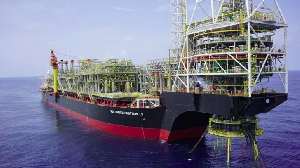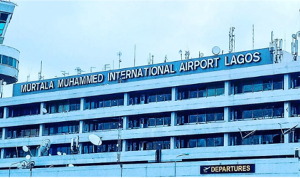Accra, July 30, GNA - Parliament on Friday passed into law, the Savannah Accelerated Development Authority (SADA) bill - an affirmative action to seal the development vacuum between the south and the north.
The 20 year strategy seeks to generate accelerated development in the savannah (three northern regions and parts of the Volta and Brong Ahafo Regions) to reduce poverty and to generate growth.
SADA experienced a mild debate with remarkable consensus among the Majority and the Minority because of the importance both sides attached to the bill.
Mr Alhassan Azang, Member for Builsa South and Minister of State at the Presidency, who moved the motion, said pre-feasibility studies and programme development had started.
He said the first SADA initiative supported by the World Bank in the area of sustainable land management had just concluded its appraisals.
Mr Azang said SADA was in a process of partnering with the Dutch Consortium to undertake detailed feasibility and the design of major infrastructure and water resources development along the Pwalugu and Sissili River Basins.
He said this would cover several hundred square kilometres of fertile arable land in what had been referred to as 93the overseas areas" of the northern savannah.
Mr Azang noted that private sector interest and commitment to support government efforts on SADA had just been given a substantial boost with 40 private sector leaders from Ghana and abroad endorsing SADA at the first private sector roundtable discussion on SADA.
He stated that major investment would be in sugar-cane to ethanol conversion by combined Ghana-Brazil partnership.
It would also include the establishment of sugar cane estate by a South African company, integrated fruit processing and large scale maize farming by a Dutch consortium.
Non Governmental Organisations (NGOs), he said, had made useful contributions in the SADA strategy and would be playing big roles in it.
Mr Azang said SEND Foundation and Northern Development Forum had embarked on a wide programme adding that various women organizations were developing strategies to engage in the sensitization of stakeholders on the challenges and the opportunities for gender balanced development acceleration in the savannah.
He noted that the Ministry of Women and Children's Affairs and Ministry of Environment Science and Technology had been the first ministries to initiate direct partnership with SADA.
The following, he said, were critical to the inauguration of SADA in October 2010 - the establishment of SADA Board of Directors, the appointment of Chief Executive Officer and the first set of six professional staff.
Other programmes include approval of SADA Development Plan and Expenditure for the medium term, Development of Partner Conference on SADA, presentation of the financial sustainability plan and the first substantial budget and the SADA permanent Secretariat.
Regional News of Friday, 30 July 2010
Source: GNA
Savannah Accelerated Development Authority bill passed into law
Opinions











